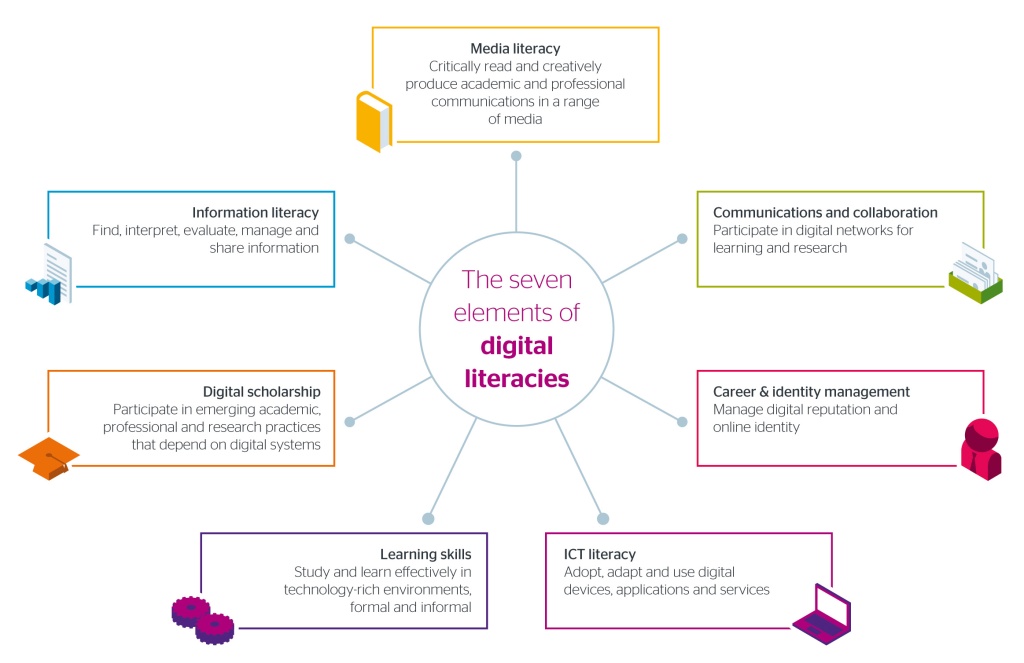Reflections on who I am in the digital age and on what my digital identity is start here, with my first personal blog post on the occasion of the first topic in the ONL course.
I was born in 1995, when I was in primary school my teacher was afraid that my classmates and I may cheat during our homework investigations by looking for pieces of information in the so called, The Internet. She wanted us to look in the books, because only books provide reliable information, whereas in The Internet, anyone can say his/her opinion and there is no certainty that what you find it is actually true.
Here I am, at 25, working and studying fully online, with my computer, from home. I don’t think I suffered that much the digital transition that pandemic forced us to do. I would love to go back to my office and to attend lectures with my university friends and colleagues, but I managed to adapt myself to this new situation pretty easily. Therefore, I acknowledge that I am a digital native.
I am not a geek, but I believe in the power digital technologies can provide to traditional human social behaviors. I’m referring to communication, politics, research, collaboration and, of course, learning. This is why, and in some way also how, I ended up in the Open Network Learning community, course and approach.
In ONL “digital” is not considered only as a set of tools and means to reach people from different part of the worlds and train them. Digital is at the same time the tool and the purpose. The first topic, which covered the two first weeks of group activities, was “Online participation & digital literacies”.
Activities started by looking for information in the recommended resources, for example the Tedx Talk form Doug Belshaw: The essential elements of digital literacies. When he says “It’s digital literacies, they are plural, they need to be socially negotiated and they depend heavily upon context”, I think on my primary school teacher. There is a huge amount of good quality knowledge online, but it is mixed and hidden between another great amount of low quality knowledge and falsity. Instead of giving us the chance to develop digital literacies to detect, select and gather good quality information online, my teacher kept us away from internet. If we look at the Seven element of digital literacies:

We can see that a good teacher, especially in 2021, must not avoid “the internet” theme, quite the opposite, he/she has to help students in developing good several digital literacies.
Starting from this model, my group and I decided to focus our investigation in the “Career and Identity management” digital literacy. This is something difficult to manage in ourselves lives, never mind to teach it to our students! The results of our investigation are available here.
As for my personal digital literacy in career and identity management, I can say I am developing it, through this ONL course as well as in a self-directed way: this blog is one proof. It is a continuous learning process, and it is a competence needed for further lifelong learning, as it is said in the European Recommendation on Key Competences for Lifelong Learning.
In the end, it’s all a matter of moving from a Visitor to a Resident mode in the different tools, context and purposes of being on The Internet.
Giulia, Thanks for this blog and a reminder of how it was in the early days of ‘The Internet’! You’ve started me thinking about whether much has changed in terms of our trust/mistrust of online content and our ability to check the veracity of what we read, as a society, as teachers and as learners.
It is worth spending some time thinking about whether you want to create professional profile online and if you do, what would the purpose be and what might it look like? From your group’s interactive Fish document, it looks like you’re well on the way to mapping it out! Best of luck.
"Mi piace""Mi piace"
Hi Sinéad, sometimes things just change so fastly and smoothly that we aren’t really aware of what skills are to be developed…
Thank you for your reflection!
"Mi piace""Mi piace"
Hi Giulia, I really liked your post. I can relate to your experiences and transition. We have similar ages (I am from 1993) I also remember my teacher warning us about using the internet. Now it is really part of my work and I don’t think that could go back to use only printed information. I think that It has great potential and we should learn how to use it properly and also teach our students how to do it. Thank you for your post! (great image from the IT crowd 😉 )
"Mi piace""Mi piace"
Hi Cristina, thank you for your appreciation 😊
"Mi piace""Mi piace"
Your blog looks so nice. I love the fact that you added pictures and photos.
"Mi piace""Mi piace"
Thank you Ilse!
"Mi piace""Mi piace"